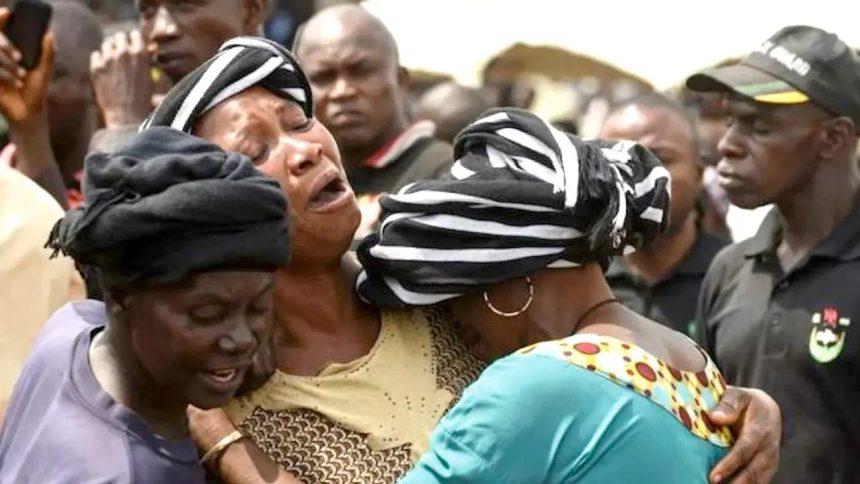About five years ago, the Berom and Irigwe natives found in the Northern part of Plateau State seized every available outlet to cry out over the forceful occupation and renaming of their communities. Still, some wondered how possible it was for such to happen.
A former governor of the State, Jonah Jang, Senator Istifanus Gyang who was then the Member representing Barkin Ladi/Riyom federal constituency; the Gbong Gwom Jos, Da Jacob Buba; all Berom Socio-cultural groups especially its umbrella body, Berom Educational and Cultural Organization, BECO and the Irigwes of Bassa local government area; among others consistently appealed to no avail that the Federal Government should tackle land occupation by foreign herders.
The Beroms pointed out some of the communities attacked since 2001 to include “Rotchun (aka Rafin Acha), Dankum (renamed “Mahanga”), Hywa (renamed “Lugere”), Fass (renamed “Tafawa”), Davwak, Chwelnyap, Lyoho Dakar, Angwan Dalyop, Janda, Darin, Shong I, Shong II; Rakweng; Dashugu; Diyan-Hei; Maseh (renamed “Lugel”), Kampwas, Kasa, Zere, Ninja-Hei, Sei, Nicha, Pwabeduk, Hyai, Kufang, Sharu, Dogo, Ningon, Rantis, Angio, Kachin, Shonong, Rahol-Mazat, Chikogo, Ranchol, Nangam, Kak, Dajak, Rarin, Kujei, Attakar, Nantwa and some parts of Bisichi, Kai, Rahol, Luk-Fei, Mallel, Bel, Rahei, Zim, Jong, Rabuk, Lobiring and Gwara Dadep.
To date, natives of these communities have integrated themselves into safer communities and cannot return home.
READ ALSO: Retiree with Disability Accuses Former FCT Minister of State of Land Grabbling Attempt in Abuja
Sadly, the situation has extended to other communities in the Central part of Plateau with the recent attacks and displacements across communities in Mangu and Bokkos which are the two local government areas worst hit in the zone.
Between April and July 2023, over 200 persons were killed in Mangu which is home to the Mwaghavul tribe, and the National President, Mwaghavul Development Association, MDA Chief Joseph Gwankat listed sacked communities to include: “Murish, Dungmunan, Kubat, Tim Naanle, Pil, Fungzai, Manja, Chisu, Fungkipang, Nting, Jwaktumbi, Kantoma, Mangul, Alohom 1, Alohom 2, Gongon, Dan Hausa, Kikyau 1, Kikyau 2, Gudum, Tyop, Kwaskipanleng, Gaude, Bure, Ntam, Jwak Raas, Mper.
”Changal, Kombili, Washna, Jwak Chom, Larkas, Fushi, Kwahas, Dangdai, Atuhun, Adep, Ajing, Milet, Daika, Dikong, Lakopal, Kogul, Niyes, Lakasi, Gwet 1, Gwet 2, Mutong, Keptul, Gung, Pyantuhul, Kus Hi, Nbwor, Vodni, Pwaskop, Nten, Konji, Niyes, Kogul” and recently, Lar’apya.
For Bokkos, some of the communities attacked last December included, Mutfet, Ndun, Sanyan, Kyong, Kop, Mandarken, Lunghai, Chirang, Makundang, Fashar, Garau, Mbong, Tahore, Tamiso, Wang, Hirpiya, Butura Kampani, Maijankai, Dares, Kamluk, Sundul, Garah Mushere, Kambar Mupeli, Mbar Fiton and other.
More than 200 persons were killed in these attacks. Survivors of the attacks have relocated from these communities and reports abound that strange people are occupying their homes, harvesting their crops from their farms, and engaging in artisanal mining known in the local parlance as ‘guza.’ The natives also call for an intense investigation of Mahanga, a Fulani enclave where reports are rife that arms are stockpiled and attacks in the State are planned and launched.
While the natives across the diverse tribes see the recurring attacks as an attempt at land grabbing, the umbrella body of herders, Miyetti Allah Cattle Breeders Association of Nigeria, MACBAN whose members are often accused of carrying out the attacks, say it is not the case.
Former governor Jang noted that the people have continued to “bear the brunt of terrorists who seem to have sworn to dispossess them of their heritage at all costs. That these killers are out on a cleansing agenda and plan to take over the lands of the people they try to wipe out is no longer hidden.”
He added, “There is the need to attend to the call for State police as part of measures for boosting security, ensuring early response in crises, and confronting the challenges headlong. The killings are getting out of hand and the State Police option is viable for nipping these massacres in the bud.”
The Senator representing Plateau Central in the National Assembly, Diket Plang stated, “… facts on the ground reveal that there is forceful occupation of attacked communities which is a pointer that land grabbing is real in the State… We need a permanent solution to the Plateau issue, criminality has crept in, and security should be heightened at the entry and exit points in the State… The Plateau issue should be more nationalistic. There is the aspect of land grabbing, the facts are there.
“The humanitarian assistance should include the provision of building materials for the rebuilding of destroyed homes so that the owners could return home and the security personnel should be stationed at strategic locations to give the people a sense of safety… We need to change our grazing policy and adopt technology in livestock and crop agriculture, your profession should not impede on mine…”
But the State MACBAN Chairman, Nura Muhammad said, “The issue of land grabbing has been over-flogged. There is nothing like that, it is just that we are killing ourselves and people are living apart. Let’s live in peace with one another and there should be a synergy with all stakeholders.”
Operation Safe Haven, keeping the peace in the State didn’t respond to questions about the insinuation about Mahanga as its spokesman, Captain James Oya could not be reached at the time of the report but Muhammad quoted earlier noted, “Mahanga is a village like any other in Plateau State, it is just that it is inhabited by the Fulani that is why all these things are being said.”
Source: Vanguard Newspaper



